Schools with an Exceptional Gerontology Department & Faculty
MHA Search
For the latest academic year, we have 170 schools in our MHAOnline.com database and those that advertise with us are labeled “sponsor”. When you click on a sponsoring school or program, or fill out a form to request information from a sponsoring school, we may earn a commission. View our advertising disclosure for more details.
The late English singer-songwriter, actor, and cultural icon David Bowie once said: “Aging is an extraordinary process whereby you become the person you always should have been.” While the experience of living a long and fulfilling life is worthy of celebration for many, the process of aging comes with its own unique health and economic challenges for older people, their families, and friends. So who can people turn to for help in empowering aging people to live healthy and independent lives? Enter the multifaceted professionals in the field of gerontology.
Gerontology is defined as the study of the process of aging. Combining many medical disciplines, including medicine, psychology, biology, sociology, and other scientific fields, gerontology is an area of specialization for professionals working in health and human services careers. The American Psychological Association divides the extensive range of gerontology careers into two categories: social gerontology (focusing on the social facets of aging) and biogerontology (exploring the biological aspects of aging).
The healthcare occupations industry is the fastest-growing occupational group in the United States. The U.S. Bureau of Labor and Statistics projects an 18 percent growth rate for healthcare occupations in the decade preceding 2026. Derek Thompson, who writes for The Atlantic, summarizes the projected stability of service-oriented medical careers with the phrase: “Services are the new steel”. Public support for subsidized government healthcare, the aging American populace, and the rapid expansion of administrative healthcare jobs demonstrate that employment opportunities in gerontology are set to increase exponentially.
Students in gerontology degree programs can expect to take courses in adult development and aging, policy and aging, environment and aging, physical health and nutrition, and aging in the family. Many gerontology programs feature specialization tracks in long-term care, aging services management, nutrition, and clinical gerontology. Universities offer graduate and doctoral degree programs as well as graduate certificates.
Graduates with advanced degrees in gerontology often find work in adult care, occupational therapy, social work, research, and administrative medical health services. Master’s programs in gerontology primarily focus on these areas:
- Long-term care
- Public policy
- Nursing
- Social work
- Counseling
- Interior design
- Recreation
- Medicine
- Architecture
- Human and family services
- Adult education
- Rehabilitation therapy
Read on to learn more about four exceptional universities with online gerontology programs and the faculty who support the teaching and research missions of these institutions.
Texas Tech University (TTU) – College of Human Services
Texas Tech University offers a fully online master’s degree and an online graduate certificate program. The 36-credit master’s degree program has 24 credits of core courses and 12 credits of elective courses, while the 15-credit graduate certificate requires two core courses and three elective course options.
Students in these programs interact with other students and instructors via email, online chat, and threaded discussions. TTU is part of the Great Plains Interactive Distance Education Alliance: a group of seven universities contributing course offerings enrolled students can take advantage of during their studies. This expansive online education option enables students to specialize in a chosen disciplinary area even if the program they’re enrolled in doesn’t offer the course.
-
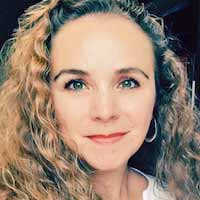
ELIZABETH TREJOS-CASTILLO, PhD
Dr. Elizabeth Trejos-Castillo is the director of the graduate program in gerontology at Texas Tech University, as well as a C.R. Hutcheson associate professor. Her areas of expertise include youth development and at-risk behaviors, cross-cultural and international comparison studies, and participatory action research, among others. Overall, she uses mixed methods (qualitative and quantitative) to study the sources of deviant behavior in young people, particularly vulnerable populations such as ethnic minorities.
In the past two decades, she has collaborated with local, statewide, and international partners to promote positive outcomes in youth. She emphasizes hands-on research among her undergraduate and graduate students, including volunteering and community outreach programs. Notably, she is a member of the Executive Session on the Future of Justice Policy, which is part of the Square One Project.
University of Massachusetts Boston (UMass Boston) – McCormack Graduate School of Policy and Global Studies
The McCormack Graduate School of Policy and Global Studies at the University of Massachusetts in Boston offers a fully online master’s program in the management of aging services.
Designed for working professionals desiring to advance or begin careers in aging services, students from a variety of professional experiences can gain practical skills, interact with expert faculty, and prepare for a wide range of careers in long-term healthcare services. Full-time students can complete this program in three semesters and most students complete all 12 courses within two years. The online format requires synchronous chats with instructors on a weekly or bi-weekly basis. The program culminates in a capstone project to demonstrate mastery in policy development, program management, and finance.
-
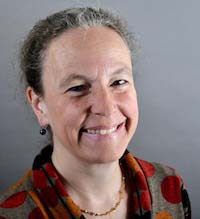
Dr. Kathrin Boerner is an associate professor in the Department of Gerontology at the McCormack Graduate School at the University of Massachusetts in Boston. She earned her doctorate degree in psychology from the Free University of Berlin in Germany.
Dr. Boerner joined the faculty at UMass Boston in September 2014 and previously held a senior research scientist position at Jewish Home Lifecare’s Research Institute on Aging. Her research expertise is in adult development and aging with a focus on coping with chronic illness, end-of-life care, and bereavement. Dr. Boerner has published extensively in peer-reviewed journals and has a strong funding record, having received several coveted grants domestically and internationally.
-
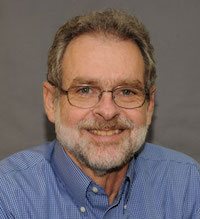
Dr. Jeffrey Allan Burr is a professor and chair of the Department of Gerontology at the McCormack Graduate School at the University of Massachusetts in Boston. He earned his PhD in sociology from the University of Texas at Austin.
His research interests include uncovering the reasons why social relationships are related to the various aspects of health, including hypertension, oral health, disability, and depression. Dr. Burr is the editor-in-chief of the peer-reviewed journal Research on Aging. He’s also an active member of the Gerontological Society of America (Behavioral and Social Sciences Section) and Sigma Phi Omega, the national gerontological honor society.
-
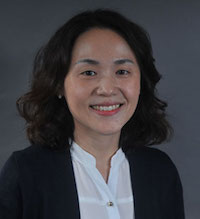
Dr. Kyungmin Kim is an assistant professor in the Department of Gerontology at the McCormack Graduate School at the University of Massachusetts in Boston.
Dr. Kim earned her doctorate degree in human development and family studies from Pennsylvania State University. In her dissertation, she examined multiple family members’ perspectives on support exchanges across generations. Her current research is split into two themes: social support between older parents and their children and caregiving issues in aging families with an emphasis on parent-child dyads.
Currently Dr. Kim is working on a research project funded by the National Institute on Aging. It examines family typologies using multiple dimensions of parent-child ties, change/stability of family typologies over time, and the associations between family typologies and well-being.
-
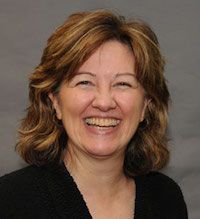
Dr. Jan Mutchler is a professor in the Department of Gerontology at the McCormack Graduate School and the director of the Center for Social and Demographic Research on Aging at the University of Massachusetts in Boston.
She earned her PhD in sociology from the University of Texas at Austin. Her areas of expertise include diversity in aging populations, intergenerational support in later life, and age-friendly communities. She has published extensively in peer-reviewed journals on topics such as race, immigrant-rights, and economics as they relate to gerontological social issues. Dr. Mutchler serves on the editorial boards of the Journal of Aging and Social Policy and Research on Aging.
-
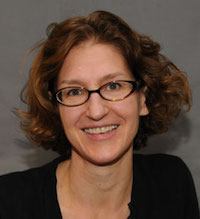
Dr. Pamela Nadash is an associate professor in the department of gerontology at the McCormack Graduate School at the University of Massachusetts in Boston.
She earned her doctorate degree in political science from Columbia University. Her research emphasis is on policies that enable people with long-term care needs to live in the community. At UMass Boston she teaches policy courses in the gerontology PhD program and the management of aging services program. Prior to her academic career, Dr. Nadash worked extensively as a healthcare consultant for government and non-profit agencies.
-
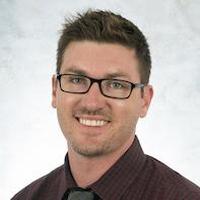
Dr. Jeffrey Stokes is an assistant professor of gerontology at the McCormack Graduate School at the University of Massachusetts in Boston. He earned his PhD in sociology from Boston College.
Prior to coming to UMass Boston, he worked as an assistant professor of sociology at Illinois State University. His areas of specialization include aging, families, and health. His research program focuses on intergenerational, marital, and social relationships for adults in mid- and late-life. Dr. Stokes has published in several peer-reviewed publications such as The Gerontologist, Social Psychology Quarterly, and Aging & Mental Health.
University of Southern California (USC) – Leonard David School of Gerontology
The University of Southern California’s Leonard David School of Gerontology offers a master’s degree and graduate certificate program. These online programs are delivered in a hybrid learning environment enabling students to collaborate online and in face-to-face classroom interaction.
USC offers six different specialization tracks for students in the gerontology master’s program. Dual degree programs are also available to students wanting to earn two concurrent master’s degrees in gerontology, business, law, public health, public administration, healthcare administration, public policy, social work, and pharmacology. Undergraduates with a 3.0 GPA or higher have access to a progressive degree program enabling them to complete bachelor’s and graduate degrees in five years.
-
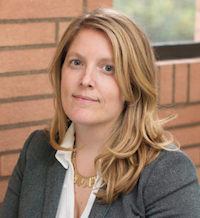
Dr. Jennifer Ailshire is an assistant professor of gerontology and sociology at the USC Leonard Davis School of Gerontology. She earned her PhD in sociology from the University of Michigan. Her research areas include social determinants of health and social demography. Her work focuses on the intersection of social stratification, urban sociology, and the sociology of health and aging. The broader themes in her work include gender, socioeconomic, racial, and ethnic inequality in health. Dr. Ailshire’s current research examines links between air pollution and health in older adults and social factors associated with poor sleep.
-
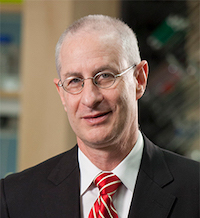
Dr. Pinchas Cohen is a professor of gerontology, the dean of medicine and biological sciences at the USC Leonard Davis School of Gerontology, the William and Sylvia Kugel dean’s chair, and executive director of the Ethel Percy Andrus Gerontology Center.
He earned his medical doctorate degree from the Technion Israel Institute of Technology, and his postdoctoral training took place at Stanford University. Dr. Cohen’s research areas of interest relate to unraveling processes of aging, diabetes, neurodegeneration, and cancer. He also holds several patents for novel peptides and is the cofounder of CohBar, a biotechnology company developing mitochondrial peptides for diabetes.
-
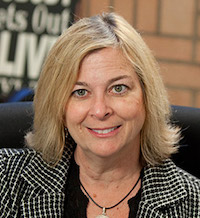
Dr. Susan Enguídanos is an associate professor of gerontology and the assistant dean of diversity and inclusion at the USC Leonard Davis School of Gerontology. She earned her doctorate in social work from USC and her master’s of public health (MPH) from California State University Long Beach. Her research areas include palliative care, models of end-of-life care, ethnic disparities in access to end-of-life care, and physician-patient communications.
Dr. Enguídanos is currently working on understanding care setting transitions for seriously ill patients and developing better palliative care for individuals with complicated illnesses. She is a principal investigator of a study testing social work intervention to improve care setting transitions for older adults moving from hospitals to homes.
-
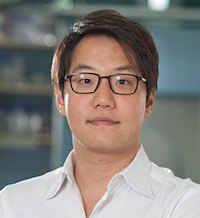
Dr. Changhan David Lee is an assistant professor of gerontology at the USC Leonard Davis School of Gerontology.
He earned his doctorate degree in genetic, molecular and cellular biology from USC and completed his postdoctoral training at the University of California Los Angeles (UCLA). He is primarily interested in the metabolic regulation of aging and age-related diseases and he uses recent discoveries in genetics to inform his laboratory research. Dr. Lee and his research team are currently creating hypotheses related to genetics and its effects on the aging process.
-
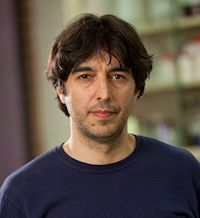
Dr. Valter Longo is the Edna M. Jones professor of gerontology and a professor of biological sciences at the USC Leonard Davis School of Gerontology.
He earned his PhD in biochemistry from UCLA and completed his postdoctoral work at the Andrus Gerontology Center in Neurobiology at USC. His research areas of interest are cell biology and genetics, Alzheimer’s disease, cancer, and diabetes. He aims to treat and prevent chronic diseases such as cancer and Alzheimer’s disease. Dr. Longo teaches two courses at USC: molecular and computational biology, and nutrition, genes, longevity and diseases which takes place in Genoa, Italy.
-
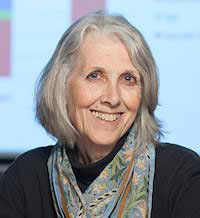
Dr. Kathleen Wilber is the Mary Pickford Foundation Professor of Gerontology and a professor of health services administration at the USC Leonard Davis School of Gerontology.
She earned her advanced degrees from USC: a doctorate degree, a master’s of public administration, and a master’s of social work. Her research areas include economic security, protecting vulnerable elders, and improving health and long-term services and support. Her research group’s current projects include examining economic security indicators among diverse groups of older adults. Dr. Wilber teaches four gerontology courses: policy, values, and power in an aging society; administration and systems management in programs for older adults; management of long-term care organizations; and politics and policy processes in an aging society.
University of Utah – College of Nursing
The University of Utah’s College of Nursing offers a 34-credit online master’s of science in gerontology. Students can choose to complete the program full-time in one year or part-time in two years. A nine-credit gerontology certificate option is also available. Students in this program are taught to be able to identify, analyze, and address information from a variety of data sources in order to help aging adults and their families make sound healthcare decisions.
-
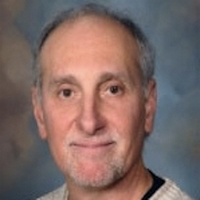
Dr. Michael Caserta is a professor in the gerontology interdisciplinary program at the University of Utah. He holds the Robert L. and Joyce T. Rice Presidential Endowed Chair in Healthy Aging. After earning his doctorate degree in health education from the University of Utah, he went on to co-found the Utah Aging Alliance (formerly known as the Utah Gerontological Society) and has served in several professional leadership roles related to gerontology. He has published extensively in peer-reviewed journals, including his most recent publication titled “Feeling lonely versus being alone: loneliness and social support among recently bereaved persons.”
Methodology
MHAOnline used the following criteria when choosing gerontology schools for this list:
- Accreditation: All schools have been accredited by associations approved by the Council for Higher Education Accreditation (CHEA).
- Awards and Recognition: These schools frequently appear among the top 25 colleges and universities in the United States according to entities such as U.S. News & World Report, The Princeton Review, Forbes, and other respected ranking organizations.
- Faculty: All schools have a world-class faculty who are widely published and have received prestigious honors.
- Online: All of the featured programs are delivered fully online or in a hybrid format.
- Student Opportunities and Support: All of these universities provide opportunities for students to learn about healthcare innovation in hands-on capacities, including through real-world case studies and skills development services.
To be selected for inclusion in this list of exceptional gerontology professors, MHAOnline used the following criteria:
- University Affiliation: The professor must be associated with a gerontology program at an accredited university in the U.S.
- Publication: The professors on this list have published extensively in peer-reviewed journals.
- Institutional and Peer Recognitions: The professors on this list have been recognized by their peers and their employers as being among the top in their field. Whether they received teaching awards, special recognition for their publications, or notable grants and research funding, these professors are dedicated to the field of gerontology.
- Professional Commitment: The professors on this list have gone above and beyond in terms of leadership and professional contributions. Some have been selected to be faculty deans or program directors; others have become leaders of professional organizations or volunteer extensively.

